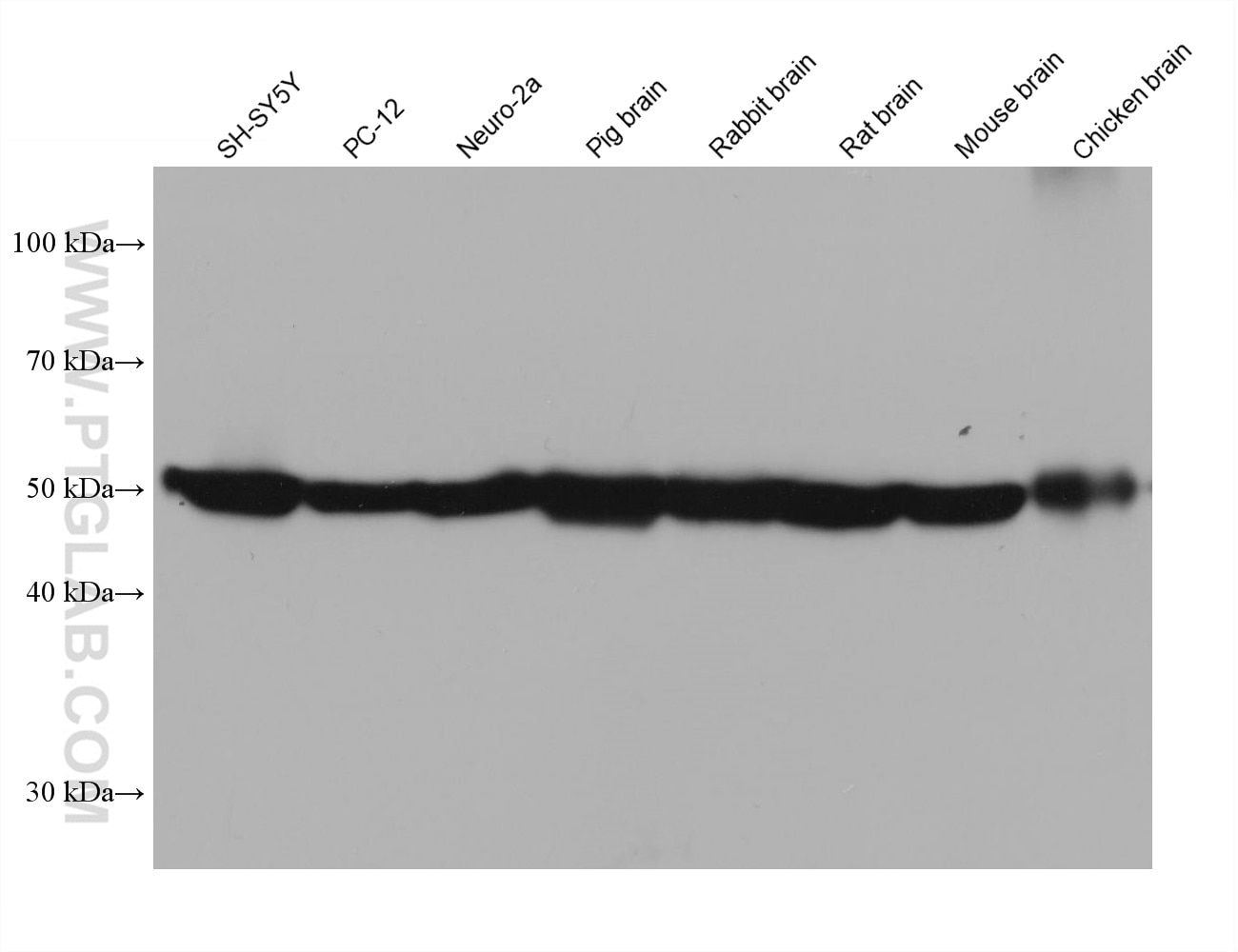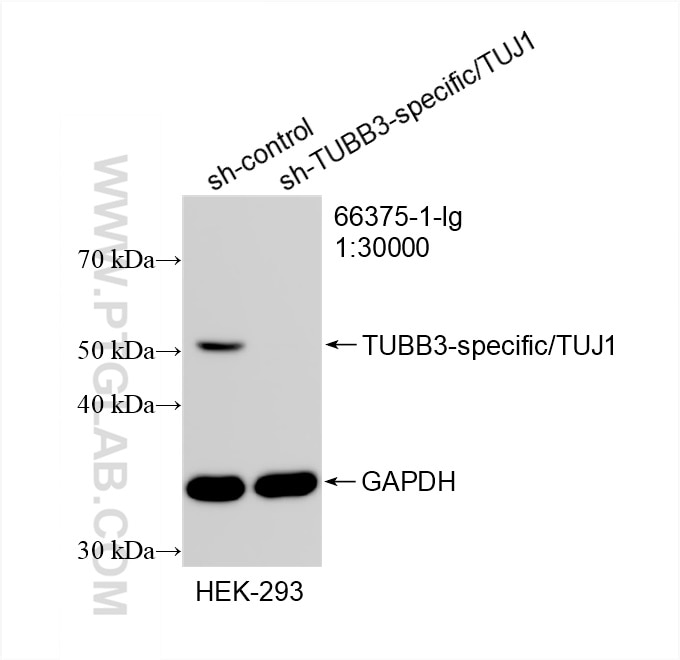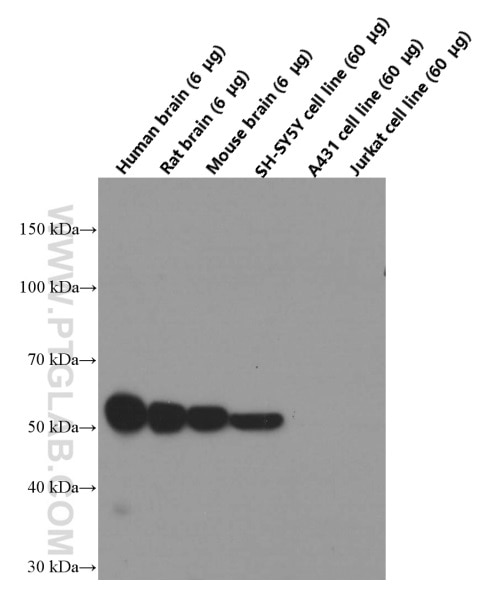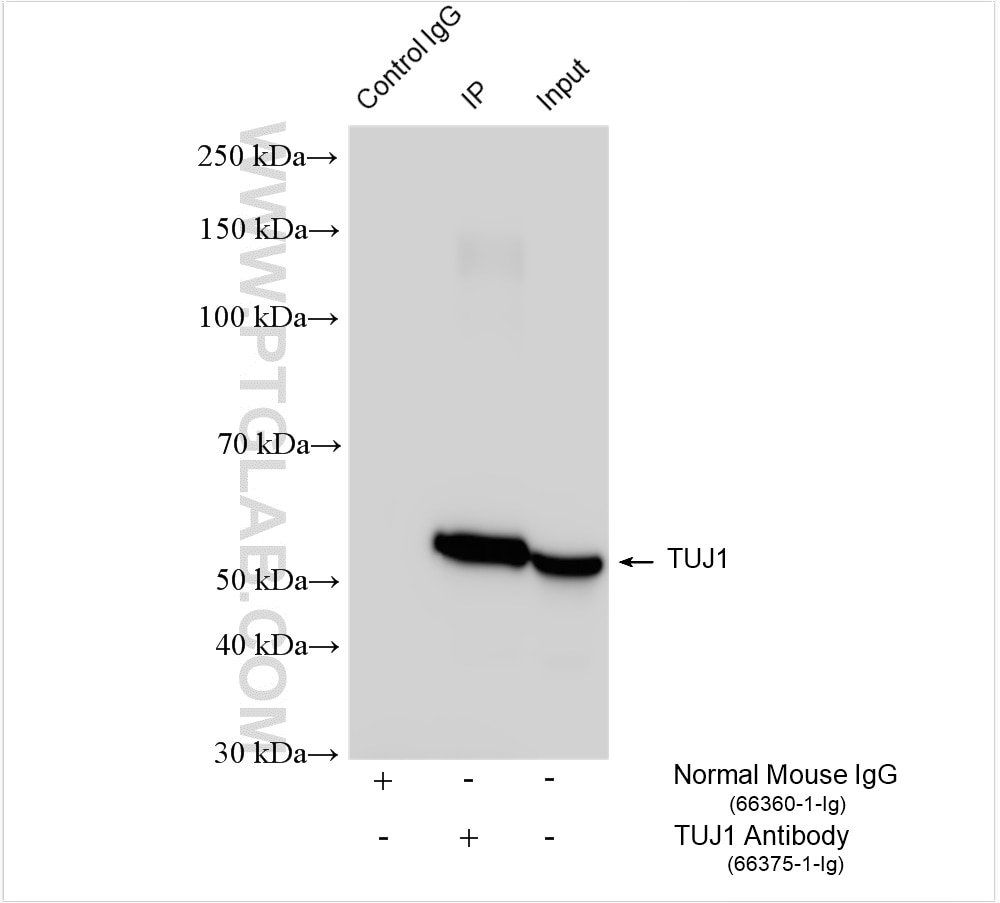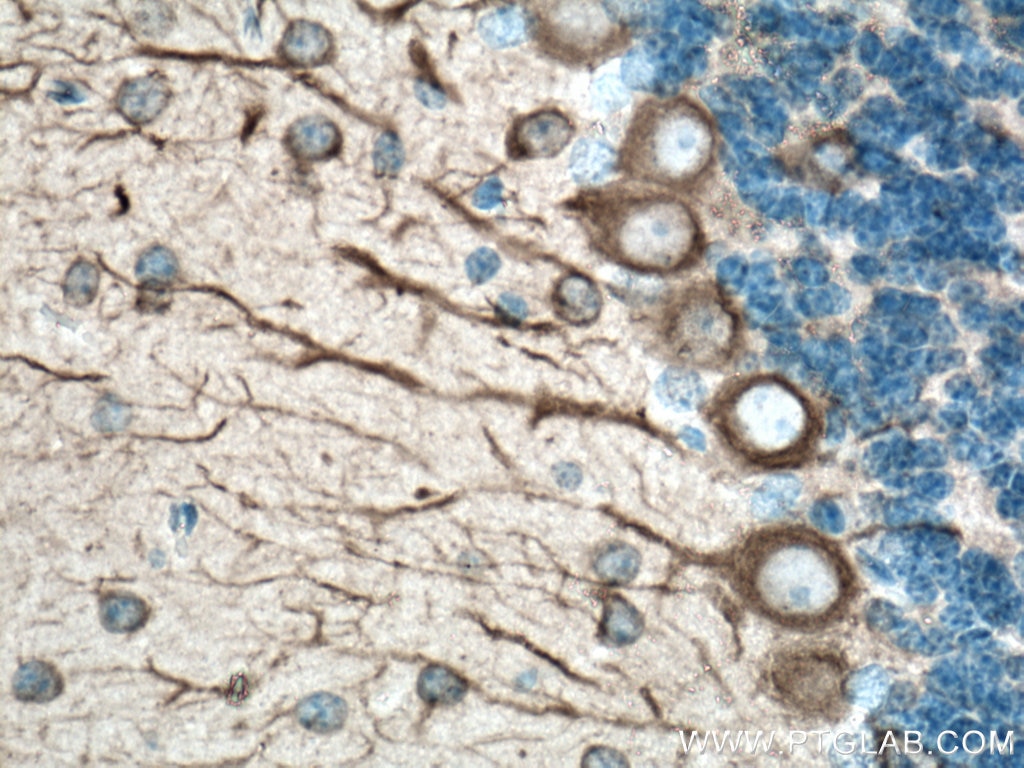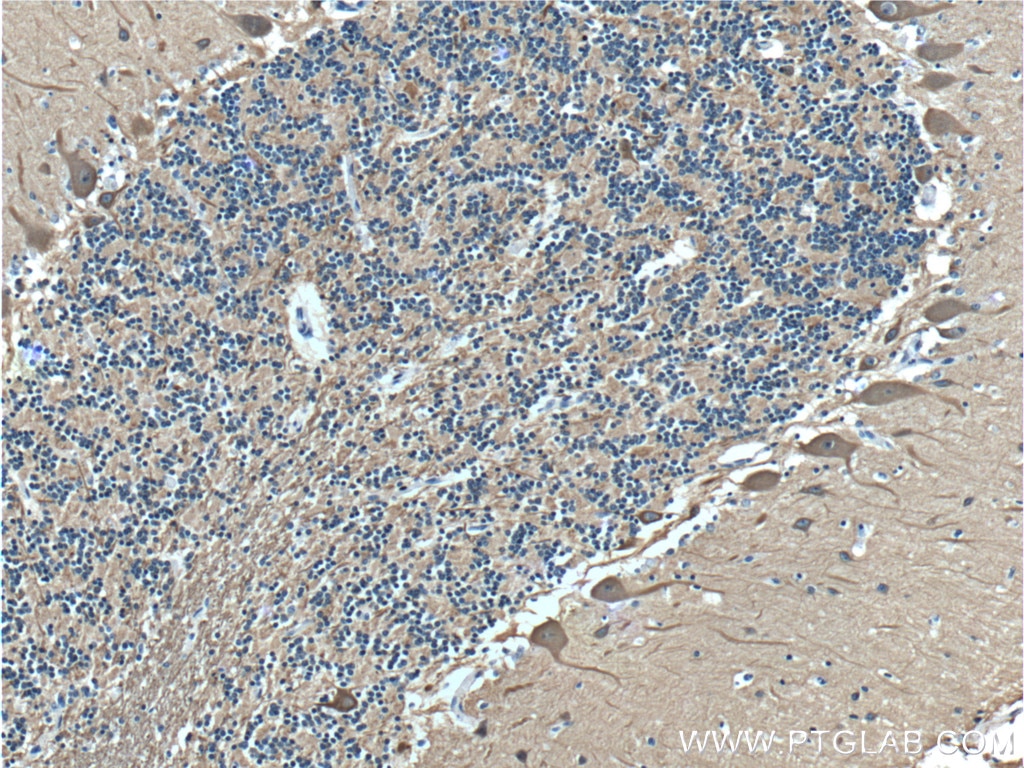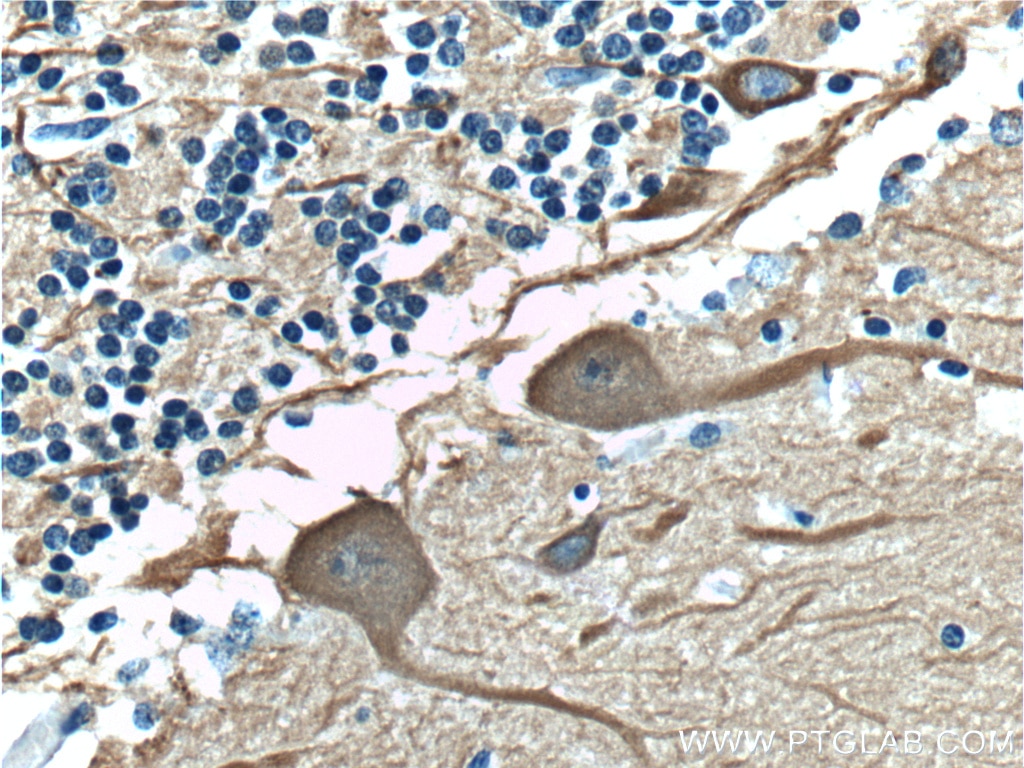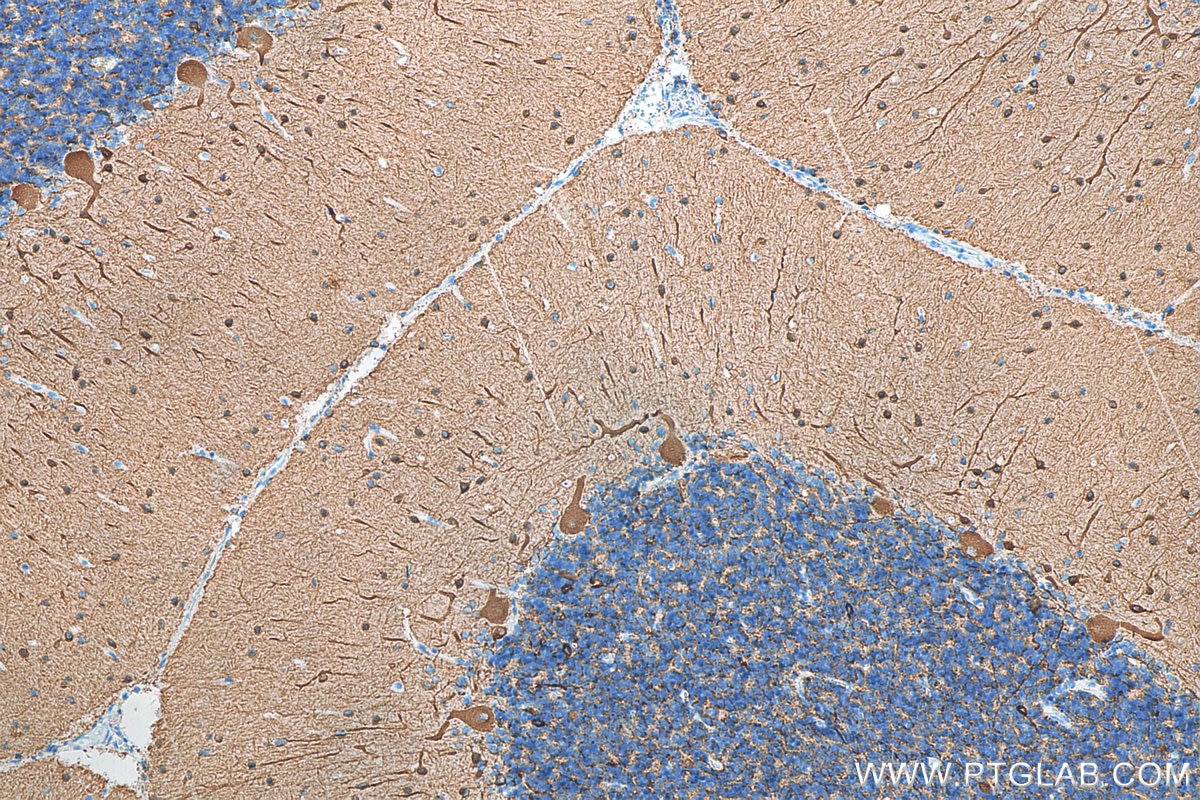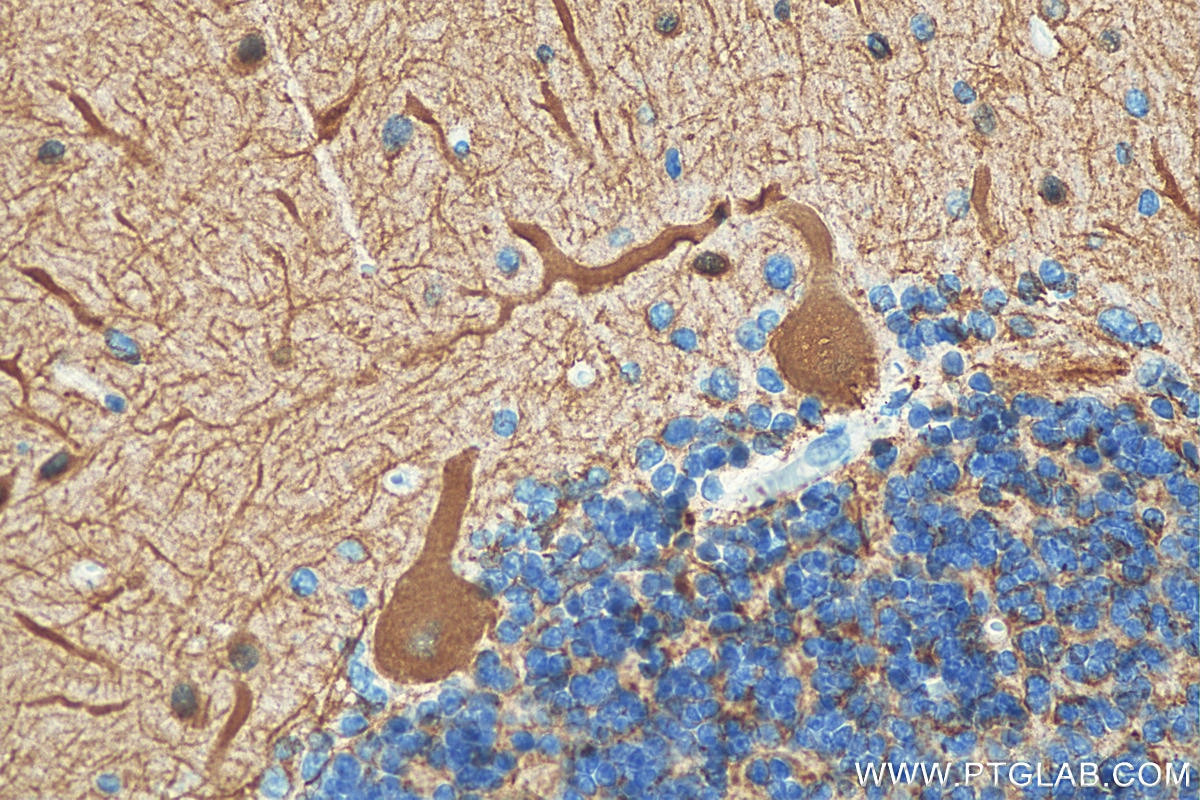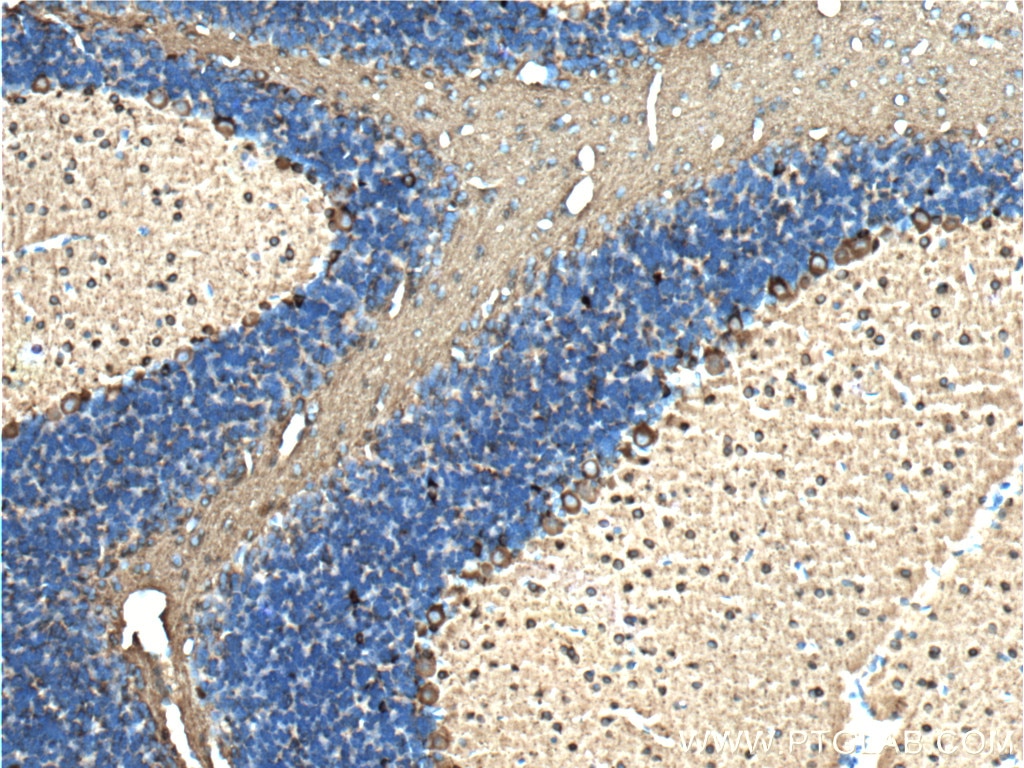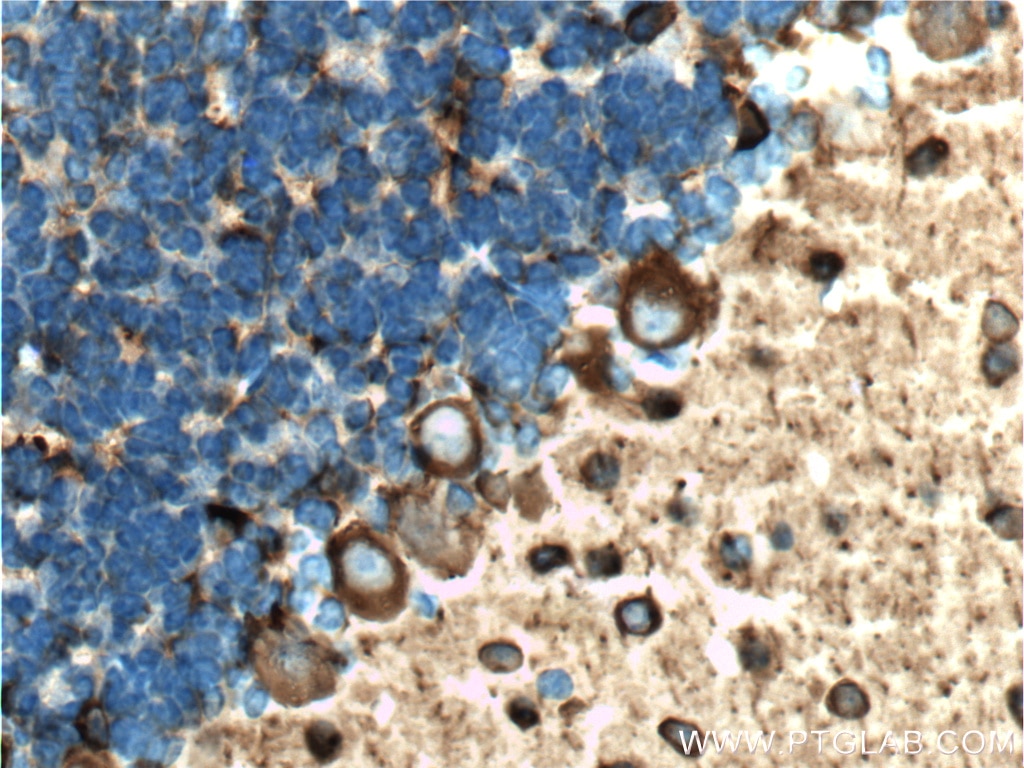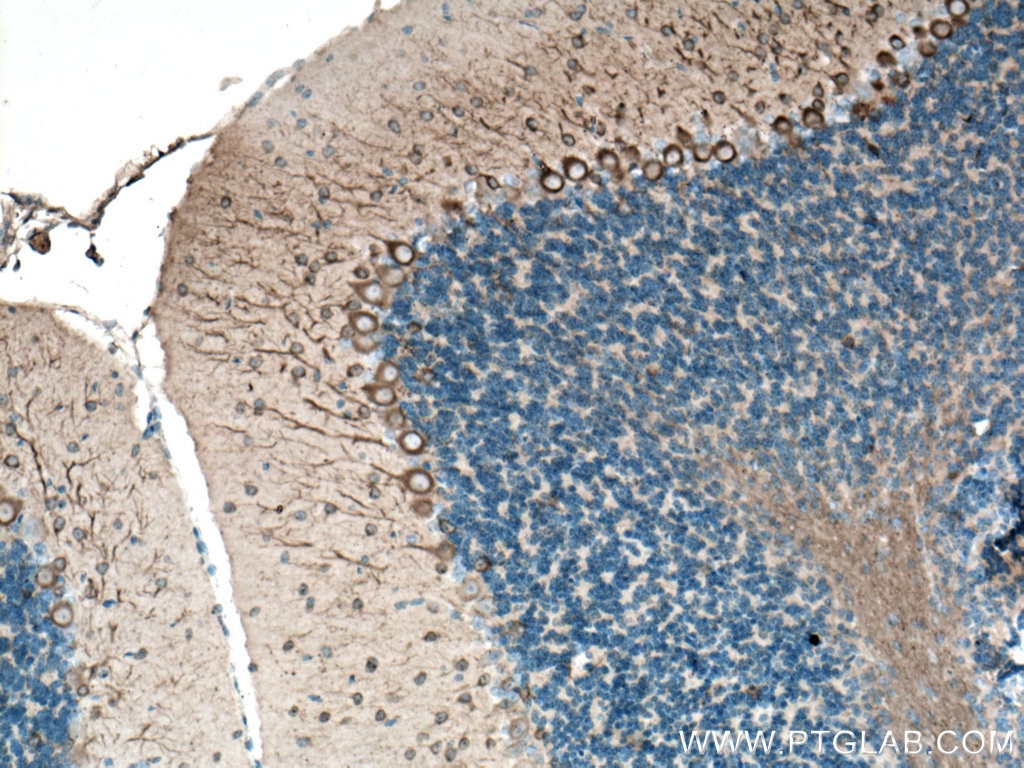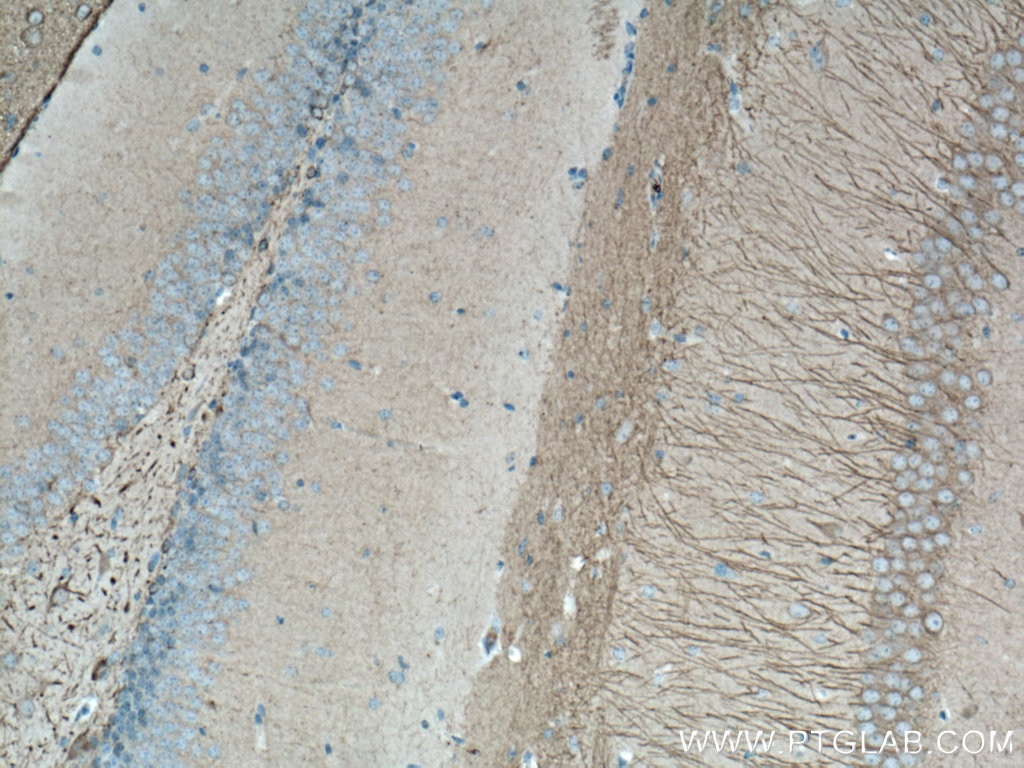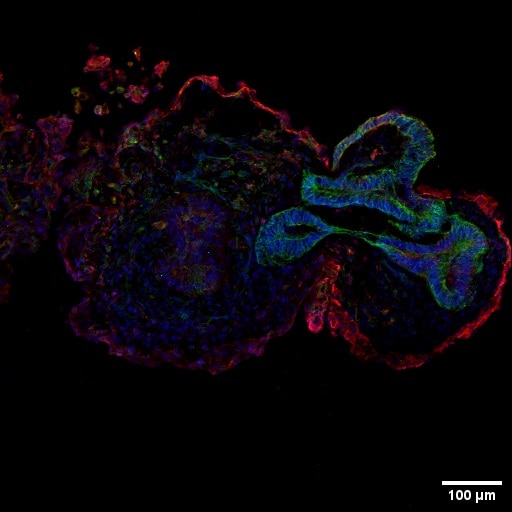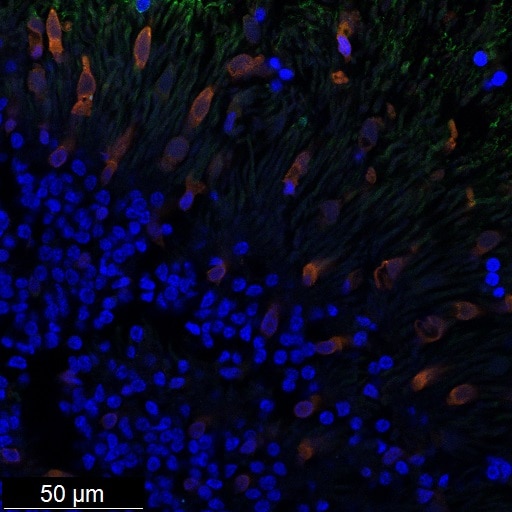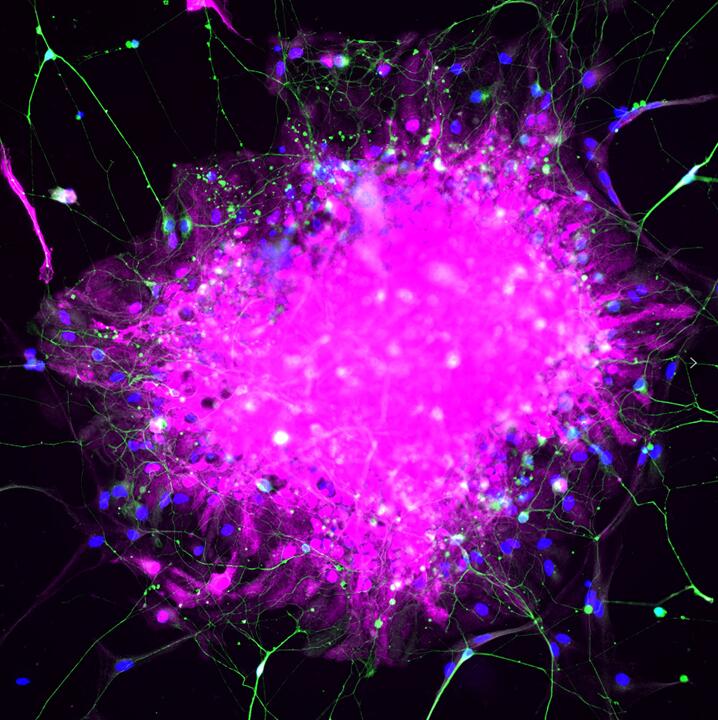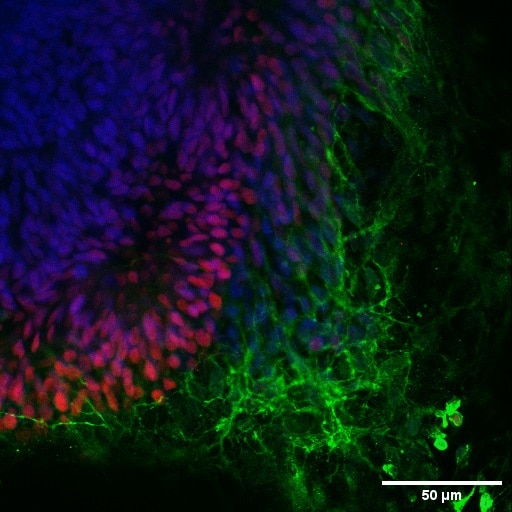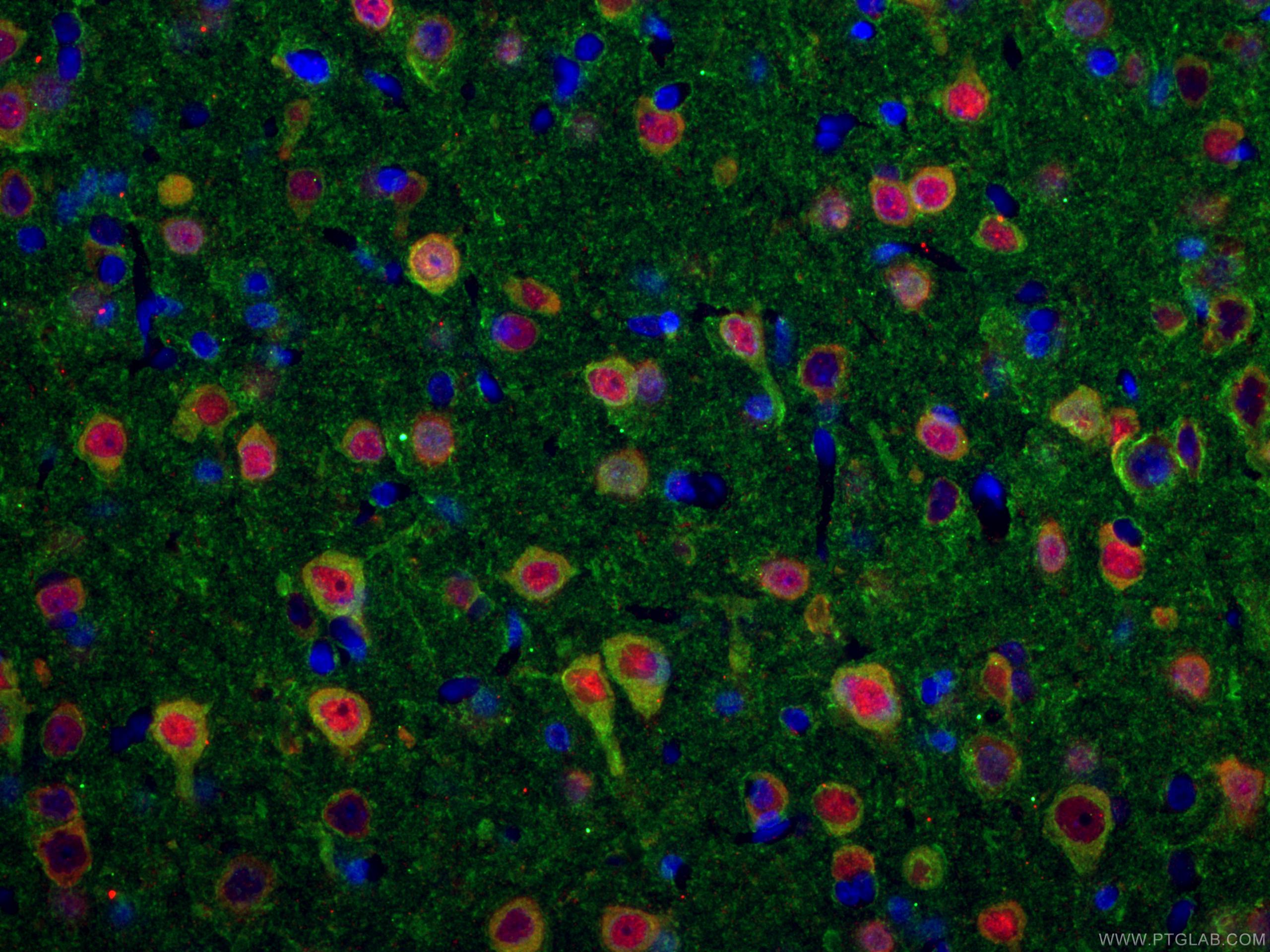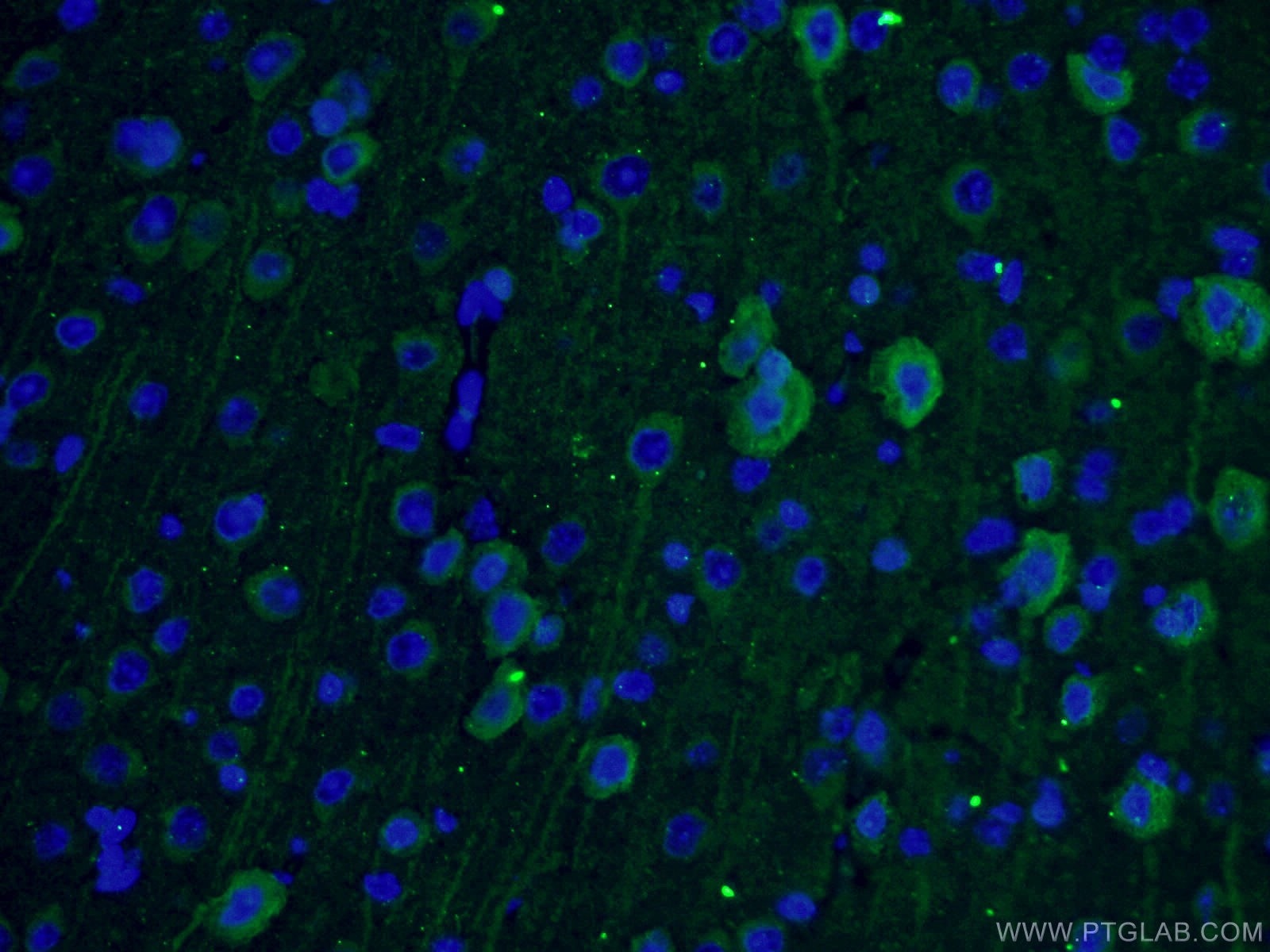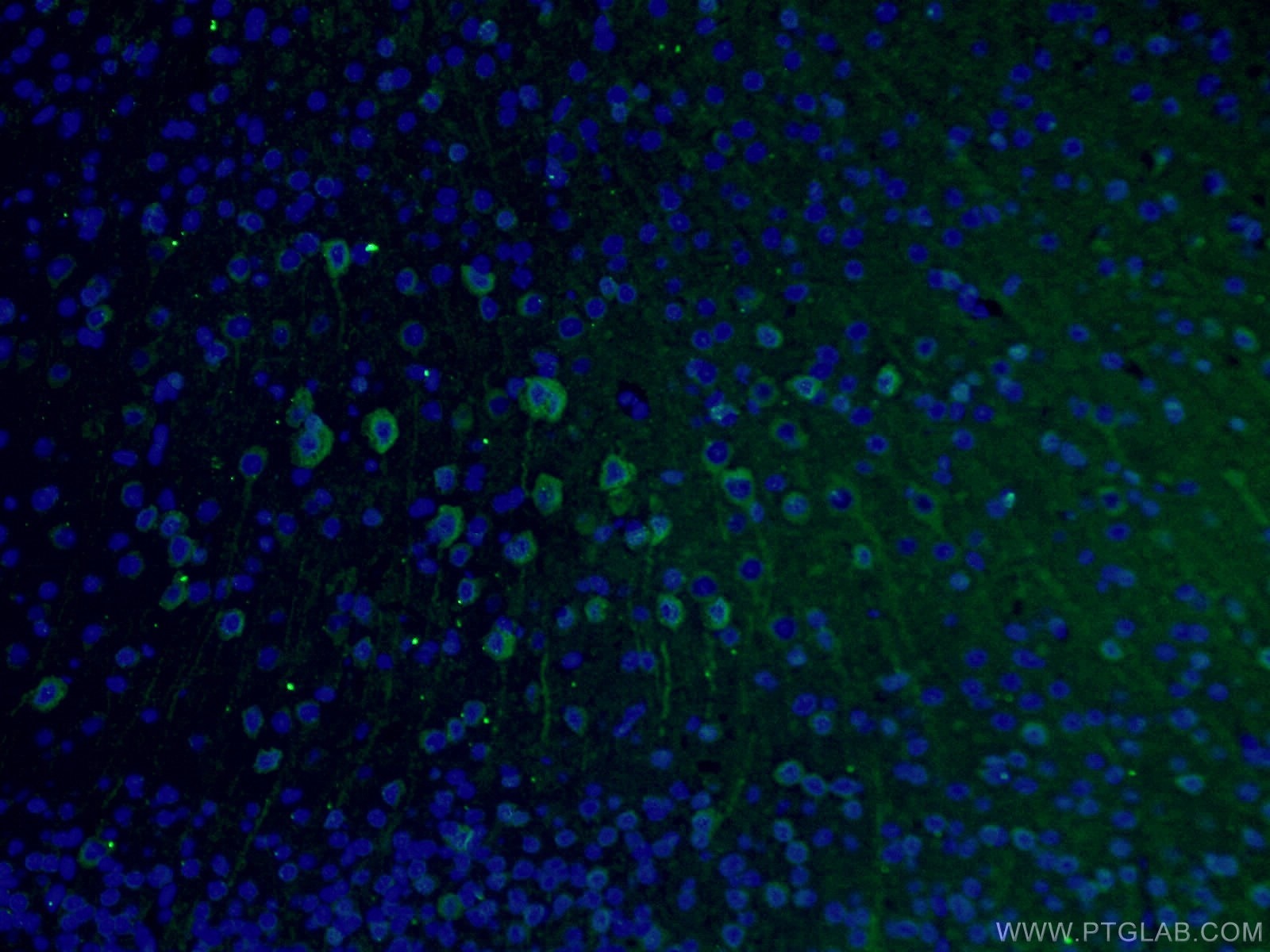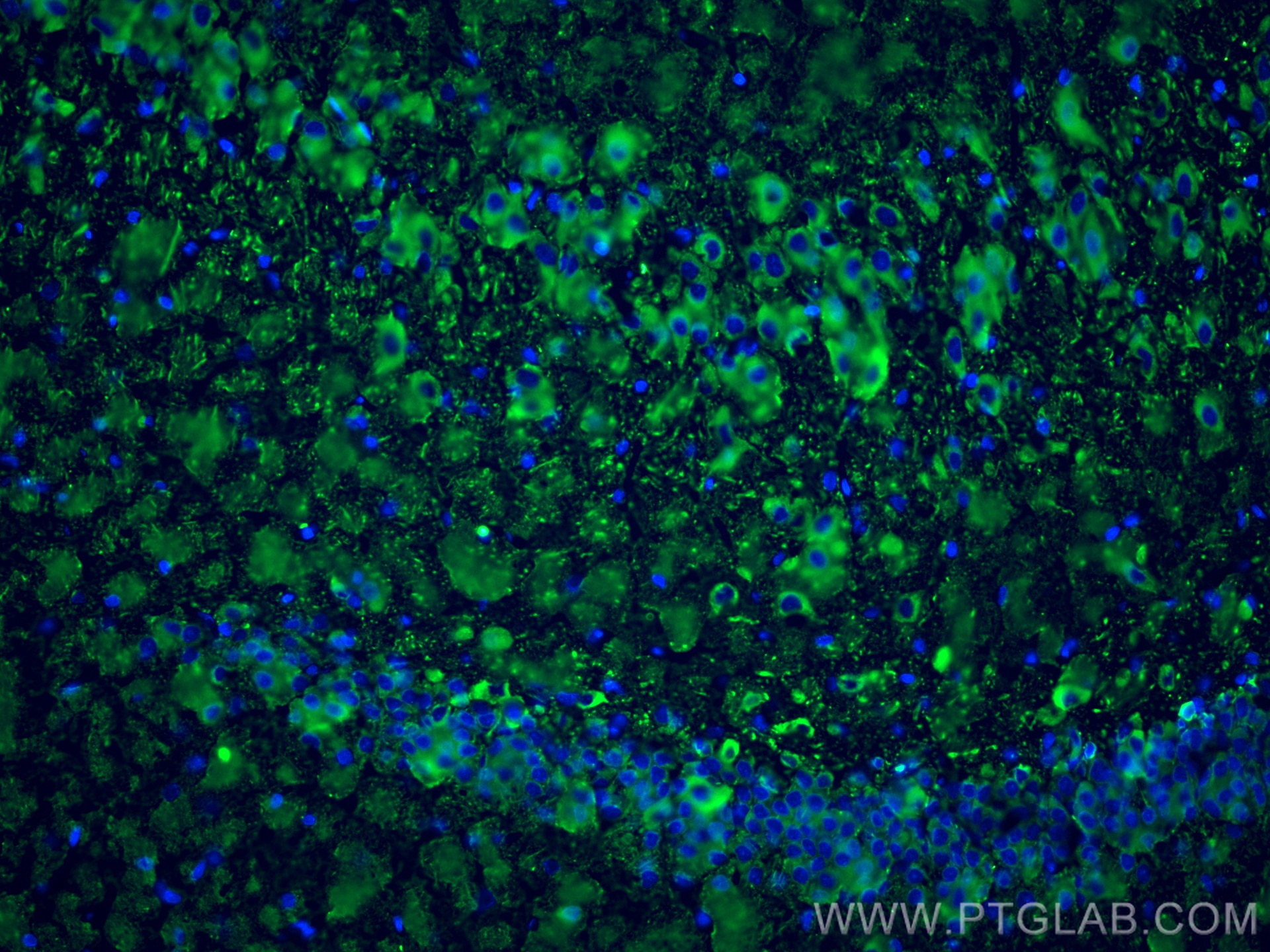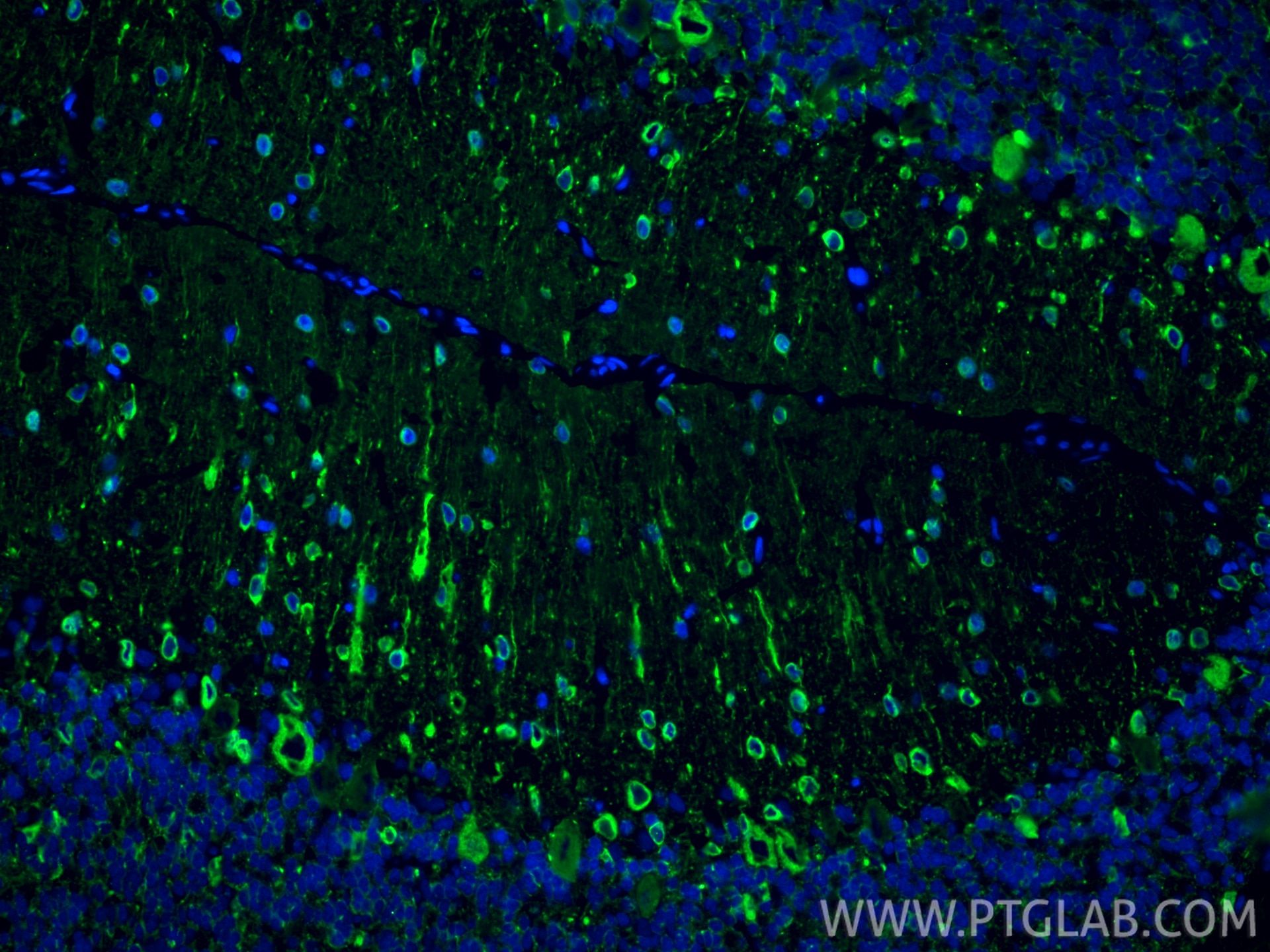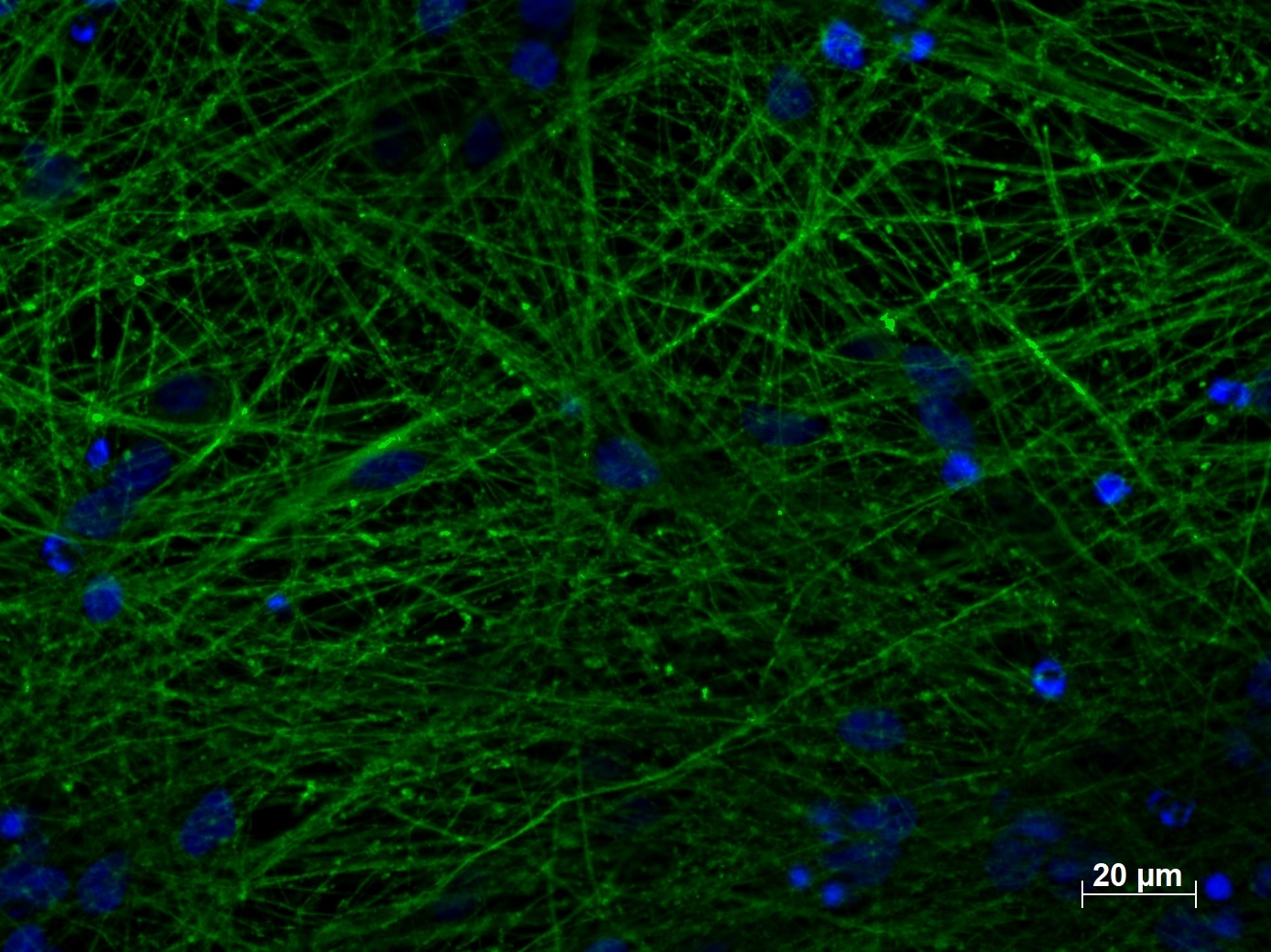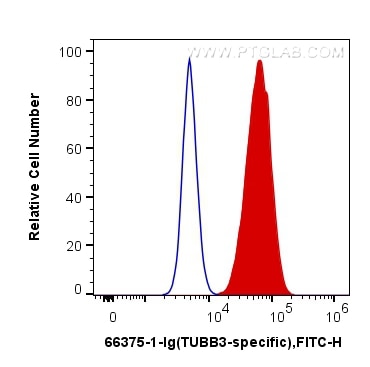- Featured Product
- KD/KO Validated
TUBB3-specific/TUJ1 Monoklonaler Antikörper
TUBB3-specific/TUJ1 Monoklonal Antikörper für WB, IHC, IF/ICC, IF-P, IF-Fro, FC (Intra), IP, ELISA
Wirt / Isotyp
Maus / IgG1
Getestete Reaktivität
Hausschwein, Huhn, human, Kaninchen, Maus, Ratte
Anwendung
WB, IHC, IF/ICC, IF-P, IF-Fro, FC (Intra), IP, ELISA
Konjugation
Unkonjugiert
CloneNo.
1F8G10
Kat-Nr. : 66375-1-Ig
Synonyme
Geprüfte Anwendungen
| Erfolgreiche Detektion in WB | SH-SY5Y-Zellen, fetales humanes Hirngewebe, HEK-293-Zellen, Neuro-2a-Zellen, PC-12-Zellen |
| Erfolgreiche IP | SH-SY5Y-Zellen |
| Erfolgreiche Detektion in IHC | humanes Cerebellum-Gewebe, Maushirngewebe, Maus-Cerebellum-Gewebe Hinweis: Antigendemaskierung mit TE-Puffer pH 9,0 empfohlen. (*) Wahlweise kann die Antigendemaskierung auch mit Citratpuffer pH 6,0 erfolgen. |
| Erfolgreiche Detektion in IF-P | Rattenhirngewebe, Maushirngewebe |
| Erfolgreiche Detektion in IF-Fro | Rattenhirngewebe, Ratten-Cerebellum-Gewebe |
| Erfolgreiche Detektion in IF/ICC | iPS-Zellen |
| Erfolgreiche Detektion in FC (Intra) | SH-SY5Y-Zellen |
Empfohlene Verdünnung
| Anwendung | Verdünnung |
|---|---|
| Western Blot (WB) | WB : 1:5000-1:50000 |
| Immunpräzipitation (IP) | IP : 0.5-4.0 ug for 1.0-3.0 mg of total protein lysate |
| Immunhistochemie (IHC) | IHC : 1:400-1:20000 |
| Immunfluoreszenz (IF)-P | IF-P : 1:50-1:500 |
| Immunfluoreszenz (IF)-FRO | IF-FRO : 1:400-1:1600 |
| Immunfluoreszenz (IF)/ICC | IF/ICC : 1:125-1:500 |
| Durchflusszytometrie (FC) (INTRA) | FC (INTRA) : 0.20 ug per 10^6 cells in a 100 µl suspension |
| It is recommended that this reagent should be titrated in each testing system to obtain optimal results. | |
| Sample-dependent, check data in validation data gallery | |
Veröffentlichte Anwendungen
| WB | See 23 publications below |
| IHC | See 2 publications below |
| IF | See 62 publications below |
Produktinformation
66375-1-Ig bindet in WB, IHC, IF/ICC, IF-P, IF-Fro, FC (Intra), IP, ELISA TUBB3-specific/TUJ1 und zeigt Reaktivität mit Hausschwein, Huhn, human, Kaninchen, Maus, Ratten
| Getestete Reaktivität | Hausschwein, Huhn, human, Kaninchen, Maus, Ratte |
| In Publikationen genannte Reaktivität | human, Huhn, Maus, Ratte |
| Wirt / Isotyp | Maus / IgG1 |
| Klonalität | Monoklonal |
| Typ | Antikörper |
| Immunogen | Peptid |
| Vollständiger Name | tubulin, beta 3 |
| Berechnetes Molekulargewicht | 55 kDa |
| Beobachtetes Molekulargewicht | 50-55 kDa |
| GenBank-Zugangsnummer | NM_001197181 |
| Gene symbol | TUBB3 |
| Gene ID (NCBI) | 10381 |
| Konjugation | Unkonjugiert |
| Form | Liquid |
| Reinigungsmethode | Protein-G-Reinigung |
| Lagerungspuffer | PBS with 0.02% sodium azide and 50% glycerol |
| Lagerungsbedingungen | Bei -20°C lagern. Nach dem Versand ein Jahr lang stabil Aliquotieren ist bei -20oC Lagerung nicht notwendig. 20ul Größen enthalten 0,1% BSA. |
Hintergrundinformationen
TUBB3, the class III β tubulin or Tuj1, is selectively expressed in testis and neurons of the central and peripheral nervous system. It has been widely used as a marker for neurons. Aberrant expression of TUBB3 has also been found in various tumors of non-neural origin and can be used as a biomarker for cancer aggressiveness and a marker for the tendency to respond poorly to chemotherapy. This antibody is specific to TUBB3 but not cross-react with other tubulin isoforms.
Protokolle
| PRODUKTSPEZIFISCHE PROTOKOLLE | |
|---|---|
| WB protocol for TUBB3-specific/TUJ1 antibody 66375-1-Ig | Protokoll herunterladen |
| IHC protocol for TUBB3-specific/TUJ1 antibody 66375-1-Ig | Protokoll herunterladenl |
| IF protocol for TUBB3-specific/TUJ1 antibody 66375-1-Ig | Protokoll herunterladen |
| IP protocol for TUBB3-specific/TUJ1 antibody 66375-1-Ig | Protokoll herunterladen |
| STANDARD-PROTOKOLLE | |
|---|---|
| Klicken Sie hier, um unsere Standardprotokolle anzuzeigen |
Publikationen
| Species | Application | Title |
|---|---|---|
Neuron Posterior Neocortex-Specific Regulation of Neuronal Migration by CEP85L Identifies Maternal Centriole-Dependent Activation of CDK5. | ||
Redox Biol LOX-mediated ECM mechanical stress induces Piezo1 activation in hypoxic-ischemic brain damage and identification of novel inhibitor of LOX | ||
Sci Total Environ Ambient NO2 exposure induces migraine in rats: Evidence, mechanisms and interventions. | ||
Curr Biol Pyramidal neuron morphogenesis requires a septin network that stabilizes filopodia and suppresses lamellipodia during neurite initiation | ||
Cell Rep NLRP14 deficiency causes female infertility with oocyte maturation defects and early embryonic arrest by impairing cytoplasmic UHRF1 abundance | ||
Theranostics Chlorogenic acid effectively treats cancers through induction of cancer cell differentiation. |
Rezensionen
The reviews below have been submitted by verified Proteintech customers who received an incentive for providing their feedback.
FH Ankush (Verified Customer) (05-02-2025) | worked fine
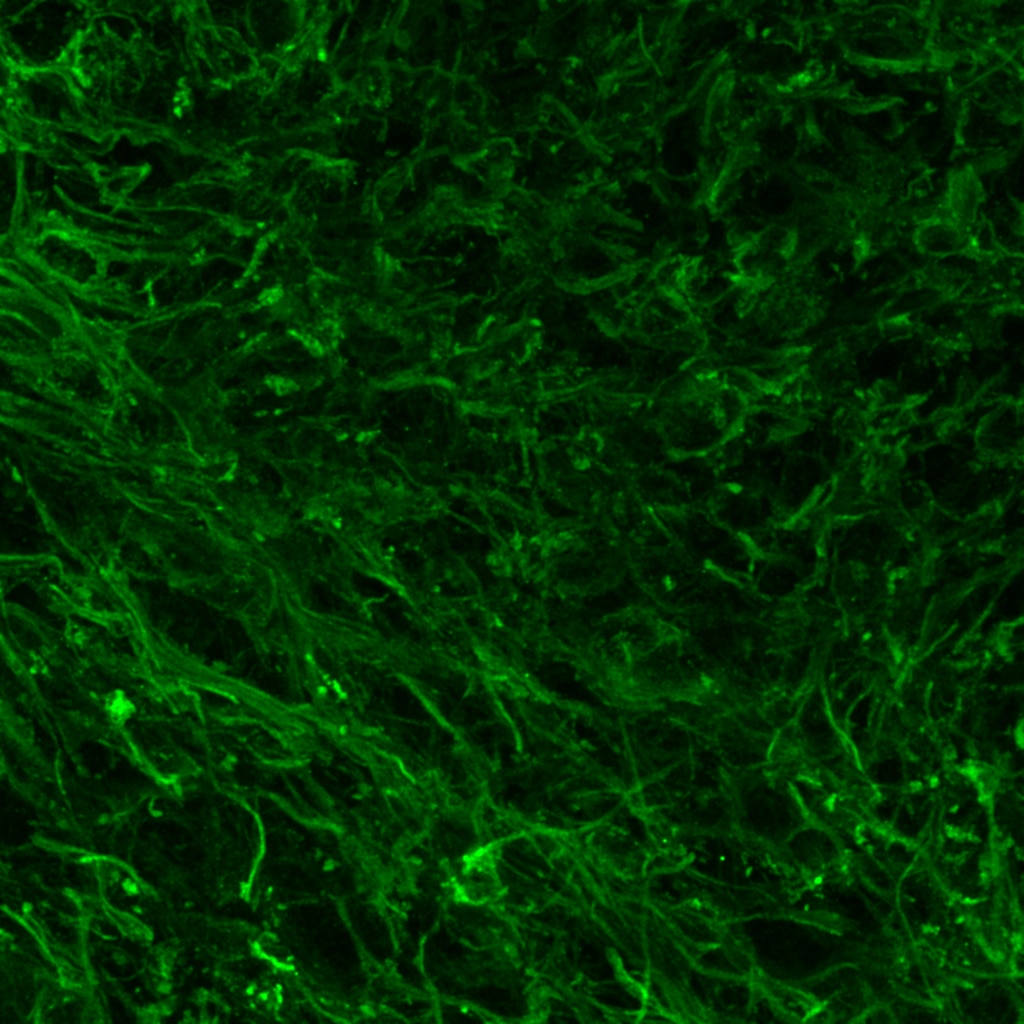 |
FH Gabriele (Verified Customer) (01-12-2023) | The antibody works very well with our IF protocol. Maybe the dilution could be pushed to 1:500-1:600. TUBB3 1:400 (green), Hoechst (Blue)
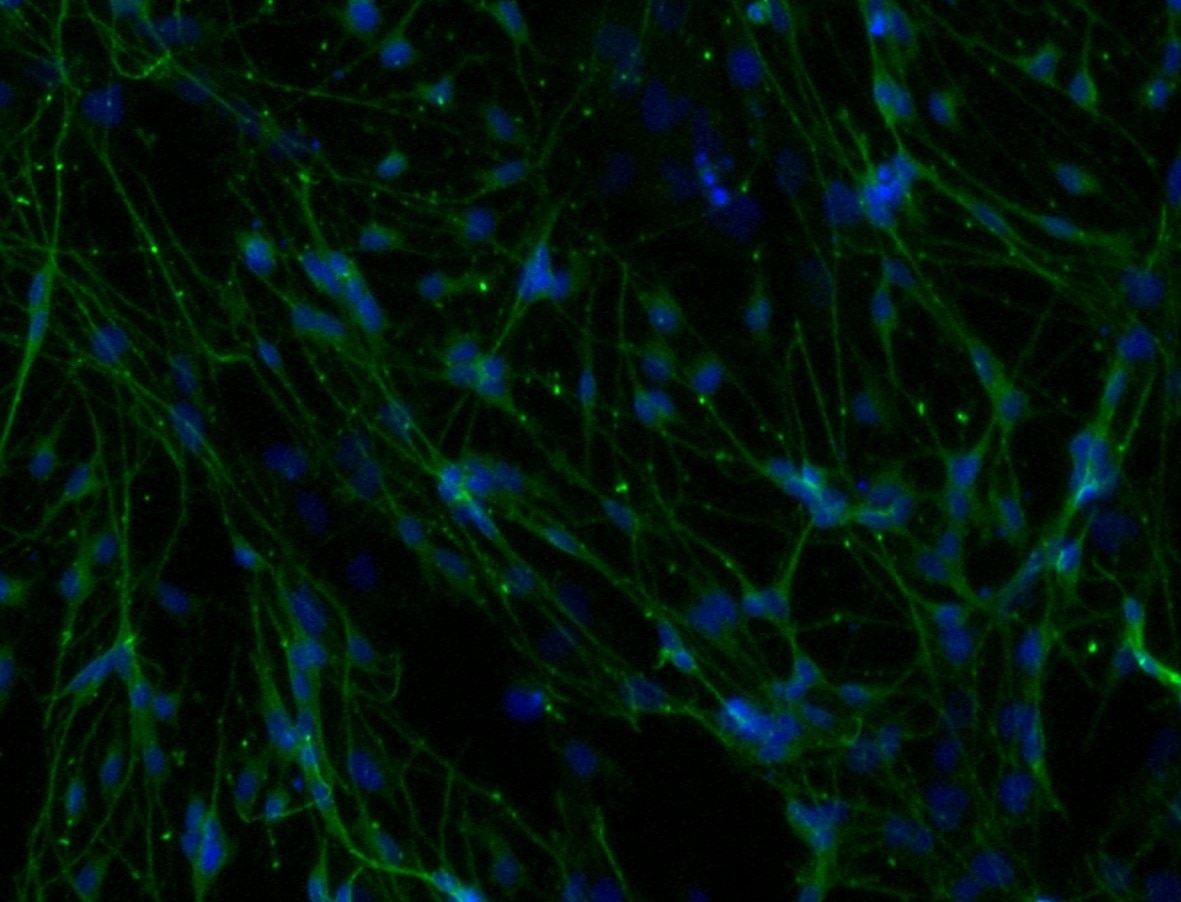 |
FH Alessandro (Verified Customer) (07-27-2022) | No aspecific staining, great outcome
|
FH Josh (Verified Customer) (12-18-2018) | BIII tubulin antibody signal nicely fills neuronal cell bodies and processes with good signal to noise at a reasonable dilution (1:500 in 1% NDS, 0.3% Triton-X, PBS with donkey anti-mouse 647 secondary, 1:500). However, BIII tubulin antibody signal also colocalized with S100 immunoreactive astrocytic processes, though with a lesser intensity. Overall, the antibody is a useful marker of neuronal differentiation when used in combination with other cell-selective antibodies and morphology. Image caption: Differentiated adult hippocampal neural stem cell culture. BIII tubulin 1:500 (purple), S100 1:500 (red), Hoechst (blue). Scale bar = 20 um.
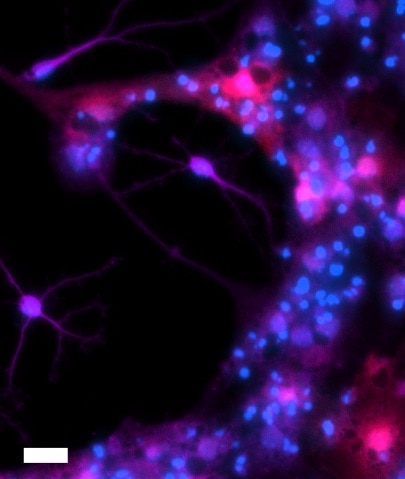 |
